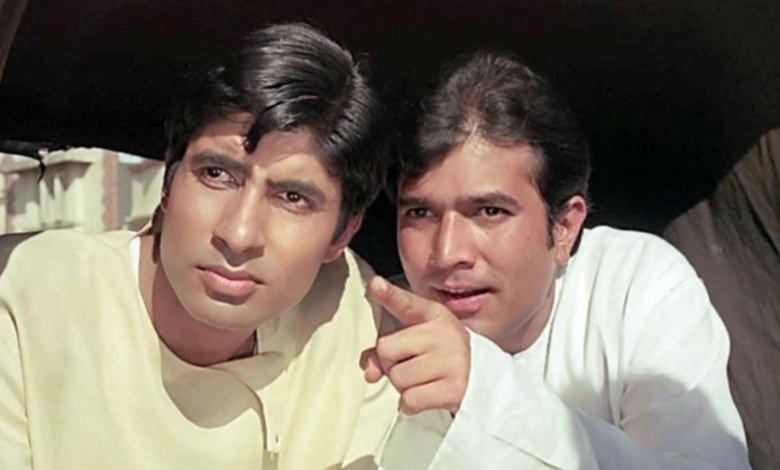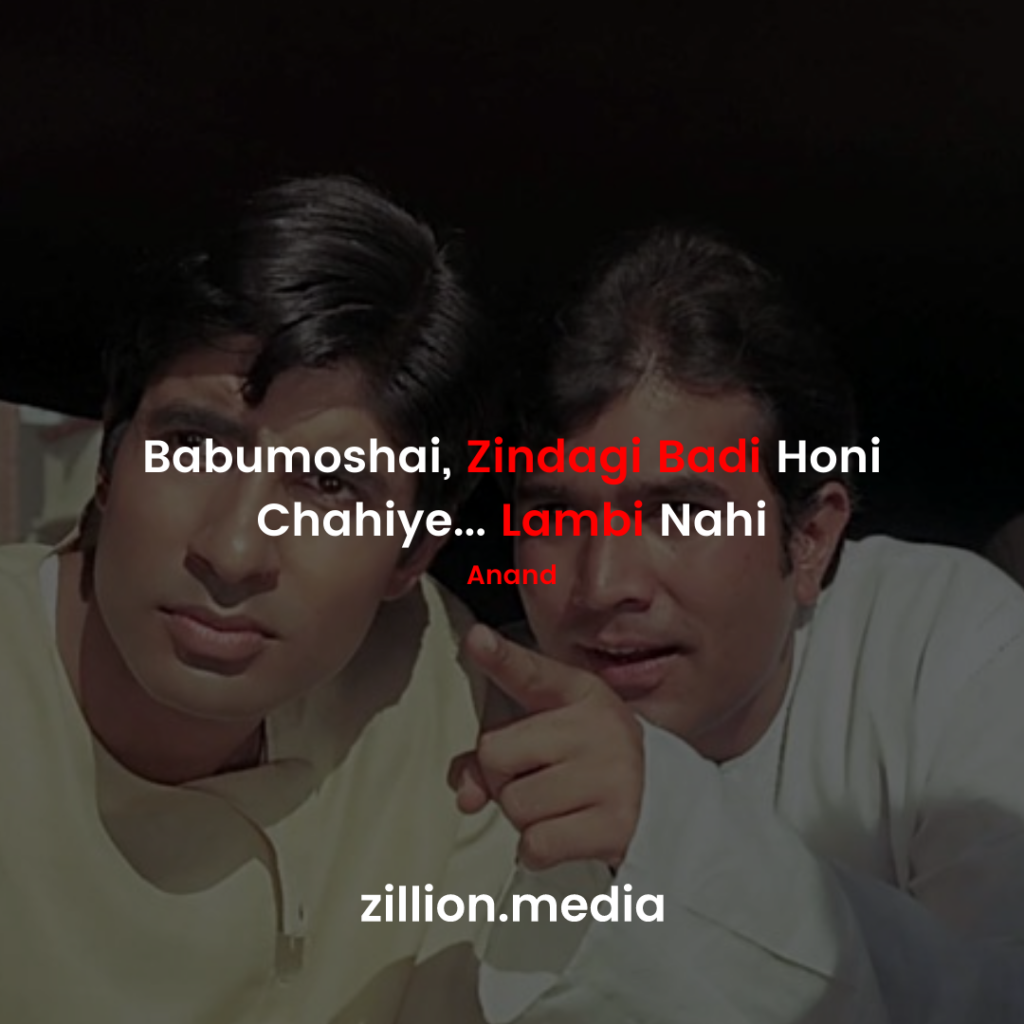50 Years of Anand – A roomful of Anand
I don’t clearly remember the first time I saw Hrishikesh Mukherjee’s 1971 classic. What I do remember is I have been watching it every time I find it on air, since then. Like a ritual.

There’s a line in filmmaker Hrishikesh Mukherjee’s 1971 classic, Anand where Amitabh Bachchan’s character in the film, Dr. Bhaskar Banerjee fondly remembers his late friend, the titular character, Anand played by Rajesh Khanna. He says, “Anand ko doston ka shauq tha. Har waqt usse ek dost ki talaash thi. Lagtaa tha har waqt har jagah usse kisi dost ki talash thi. Aur issi liye maine yeh kitaab chhapwayi. Taaki do chaar dus ki ginti se nikal kar uski dosti main saari duniya se karaa doon.”
Watching this scene unfurl at the recently held Hrishikesh Mukherjee film festival in Bangalore, in a room of audience of all age — gathered together in their mutual love and admiration for this little gem of a movie, its evergreen characters, and its creator — was the most fitting tribute.

Known for his heartwarming and socially significant cinema, Anand is perhaps Hrishi da’s most widely watched and discussed work. It tells the story of a terminally ill man with an infectious zeal for life and friendship, and happens to be on the must-watch list of almost every Hindi cinema lover.
I don’t clearly remember the first time I saw Anand. What I do remember is I have been watching it every time I find it on air, since then. Like a ritual. I have watched it in solitude, in the company of friends, chuckled at its ready humor and wept at its warm depiction of non-familial relationships. Never tiring. So watching it with a bunch of people who perhaps shared similar sentiments about this film gave a strange sense of kinship.
Anand isn’t the richest of cinema. There are, and have been, movies that are superior to it in terms of art and craft. But the disarming simplicity of the film, true for most of Hrishi da’s body of work, makes Anand strike a chord even after all these years. The melange of characters — of diverse backgrounds and faiths — that the protagonist gets to know with his life’s clock ticking away and the manner in which they enrich each other’s lives isn’t just engaging cinema. The subtext here points at the essence of Indian spirituality: the body is transient, the soul is eternal. You will die, your actions will live forever.
Anand is an ode to memories, to the people we meet, the friends me make, the bonds that grow deep for no apparent reason. It stands for joy, intimacy and sincerity.
It was drizzling by the time the screening was over. As I waited for my cab at the entrance of the gallery, I noticed an elderly couple, who was sitting ahead of me at the screening. As the husband tried to start his scooter, he stopped for a moment, took the raincoats out of the two-wheeler’s locker, and helped his wife to put on hers first. A simple gesture. The wife smiled. These were the people who had come to watch Hrishi da’s film — simple people. And perhaps these were the people Hrishi da made his movies for.
Made me think of this lovely line from the filmmaker’s other fine work, Bawarchi (1972), “but it is so difficult to be simple.”
This article is written by Naygarp, a Medium user.
For more such stories, follow us on Facebook, Twitter and Instagram.






